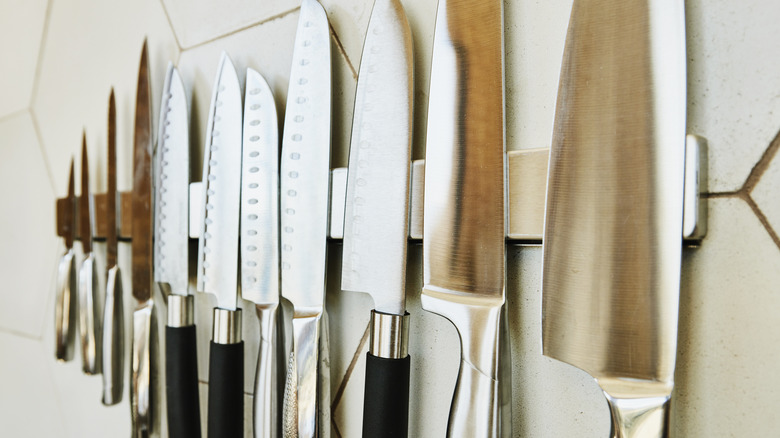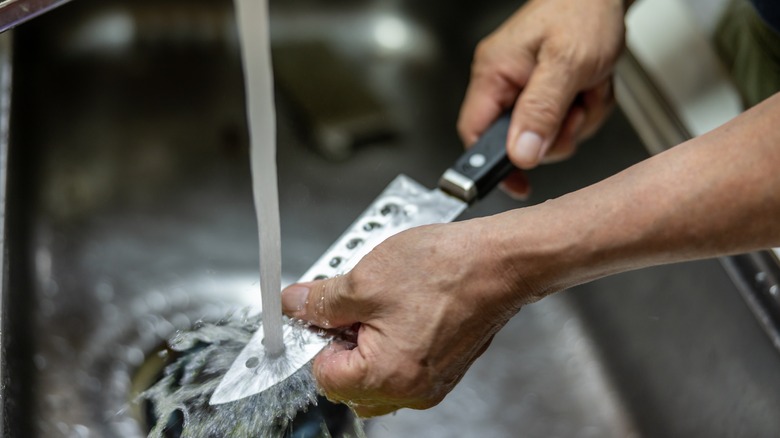One Of The Biggest Mistakes You Make With Kitchen Knives Is How You Clean Them
Good knives can transform the cooking experience for home chefs, making it worthwhile to invest in high-quality pieces that will last a lifetime. However, their long lifespan depends upon proper care, storage, and cleaning. While it may be tempting to toss your knives in the dishwasher, don't make this common mistake. Dishwashers cause damage that affects the lifespan and performance of your knives, so it's crucial to clean your knives by hand to keep them in excellent condition.
A lot can happen in the dishwasher that can cause damage to or dull your knives. The high water pressure jostles knives against other silverware and dishes, leading to nicks and scratches on the blades and dulling of the edge. Additionally, the plastic interior of the dishwasher can create further wear and tear, as can the sediment that the high pressure washing can project around during the cycle. Harsh detergents can damage the edge and dull the blades over time. Certain handle types, particularly wooden ones, are vulnerable to damage from the dishwasher's environment. Prolonged exposure to moisture also creates an ideal condition for rust to develop, as knives remain wet for longer than they would if cleaned by hand.
Proper cleaning and storage for knives
Professional chefs know that proper care is key to keeping knives in top shape, and that starts with thorough cleaning. While hand-washing might take a little extra time, it's worth the effort to avoid the wear that can come from dishwashers. Try to wash knives as soon as you're done using them, rather than letting them sit with food remnants that can dry on and become difficult to remove. Avoid soaking knives, as it can be both damaging and dangerous. Instead, use warm, soapy water, and rinse thoroughly. Use a soft cloth and dry completely to prevent rust.
Storing your knives correctly is just as important. Improper storage can cause dulling and even pose safety risks if knives are loose in a drawer. If drawer storage is your only option, consider dedicating space for knives with edge guards for each blade or a fitted drawer block. For countertop storage, knife blocks or magnetic strips are excellent choices to keep them accessible and protected. Handle materials may also require some attention — for example, wood handles should occasionally be oiled to prevent drying or cracking, which keeps the knife comfortable to hold and more durable. Check your manufacturer's guidelines for any additional care recommendations. With regular sharpening in addition to proper care and storage, your knives will perform at their best, keep you safe, and last a long time.

